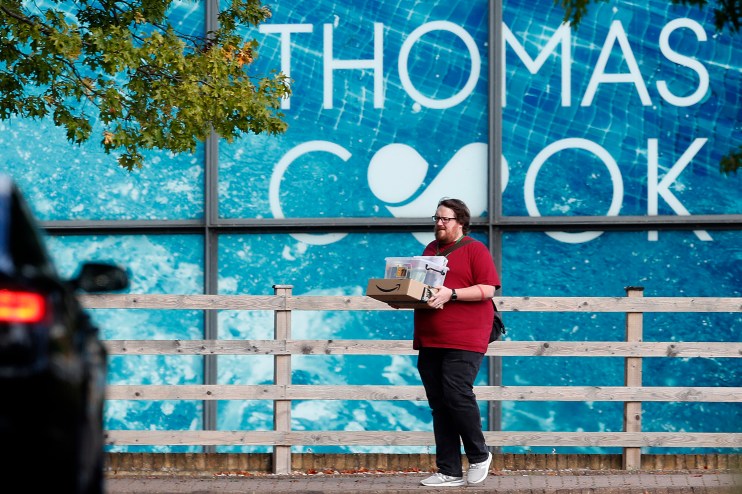Thomas Cook: Travel giant ‘collapsed with a £3.1bn balance sheet deficit’

Thomas Cook would have run out of cash by early October had it not gone into liquidation on Monday, such was the calamitous state of the travel giant’s finances, according to reports.
In a High Court witness statement, now-former chief executive Peter Fankhauser said the firm had a balance sheet deficit of more than £3bn.
Read more: Thomas Cook collapse: Regulators and business groups clamour for answers
That included £1.9bn of debt and guarantees to organisations such as the Civil Aviation Authority, bonding providers and payment service providers.
Fankhauser said that left the firm with “a balance sheet deficiency of in excess of £3.1bn,” and predicted that after restructuring talks failed, “in simple terms the company will run out of cash by October 4,” according to the Times.
He added that “the absence of funding” was a primary reason the board chose to go into liquidation rather than administration.
Thomas Cook collapsed in the early hours of Monday morning, leaving 155,000 Brits stranded abroad and putting its 9,000 UK workers out of a job.
Fankhauser said that in the week beginning 9 September, lenders demanded an extra £200m in funding, on top of the £900m already agreed by main shareholder Fosun.
Thomas Cook did not think the extra money was needed to keep it afloat, but lenders spearheaded by RBS said it would be required as extra liquidity headroom over the winter period, when holiday companies struggle. Banks originally asked Fosun to pay the extra money, but it refused, he revealed.
The travel group also had debts of nearly £500m to hotel partners and creditors by the time it collapsed.
Read more: Thomas Cook collapse set to net hedge funds millions
The revelations come after the Financial Reporting Council (FRC) yesterday said it was looking into a possible investigation into the firm.
The FRC said: “In light of recent developments at Thomas Cook we are considering whether there is any case for investigation and enforcement action as a matter of urgency and in cooperation with the Insolvency Service.”